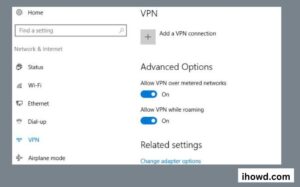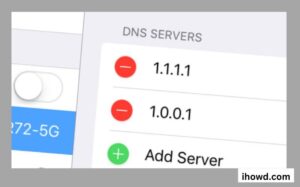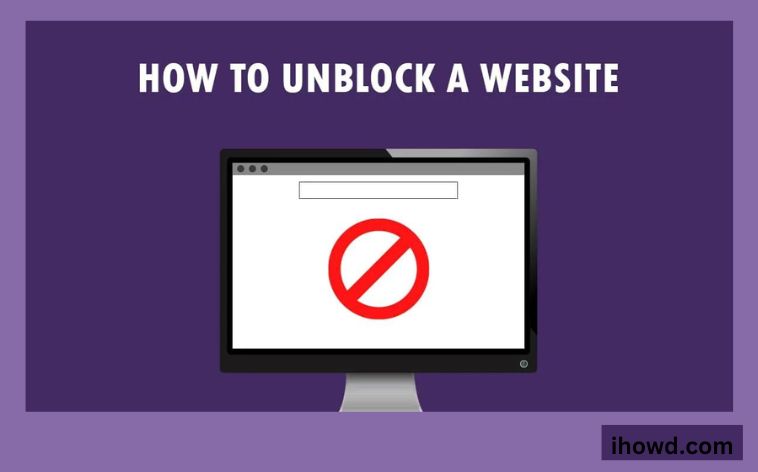Whether we’re using the computers in the school library, using the internet at work, or travelling to a totalitarian nation like China, we’ve all encountered website filters. Virtual private networks, or VPNs, are without a doubt the simplest way to unblock websites, but there are also a number of alternative options. Below, we’ve listed every one of them along with detailed instructions.
How to use a VPN to unblock a website
Select a trustworthy VPN service provider.
We suggest NordVPN, now 68% OFF!
To acquire your account, register.
Install their software, then sign in using your login information.
Your traffic will appear to be coming from a different country when you connect to their servers, unblocking the website.
How to Configure a VPN

Select a VPN. Your best bet is to start with our VPN purchase guide. Alternately, if you’re a student, look into the top VPNs for academic use.
Download a browser plugin to encrypt only your web browsing, or a VPN programme to encrypt web traffic on your entire device. Be aware that browser extensions will generally be a better choice if you’re using a computer at school.
Use your username and password to log in.
Link up with a VPN server. For the best speeds, look for nearby server locations.
You should be able to circumvent internet restrictions now that your IP address has changed, even in nations with the Great Firewall, like China (learn about the top Hong Kong VPNs if you’re in Hong Kong). Your IP address and internet traffic will both be encrypted, enabling you to access any website of your choice, even blacklisted and restricted websites.
Related How does a Magnetic Compass Work?
The best VPNs for unblocking websites are those that have dynamic IP addresses, which means that each time you connect to the internet, a new IP address is assigned to you. If you want to find out more about reliable VPNs with dynamic IP addresses, we suggest reading our reviews of ExpressVPN, Private Internet Access, and IPVanish.
1. Using a web proxy, unblock websites
When you need to unblock a website for school or if you can’t install a VPN or Tor, a web proxy is a good option. This is especially true for Chromebooks, which run Android apps. Your real location will be concealed as you connect to a proxy server first, then your preferred website.
Using a web proxy makes it simple to figure out how to unblock websites on a school computer or Chromebook. Go to a proxy website, type in the URL of the real website you wish to see, then click a button to access it to utilise a proxy server.
The drawback is that you must open the web proxy in each tab before you can access the desired website. It’s generally irritating and not ideal for online multimedia streaming. Additionally, despite being typically free, web proxies do not offer the same privacy and security safeguards as a VPN or Tor.
Using the HMA web proxy to unblock websites is safe. Go to the HMA web proxy website, type the URL of the website you wish to visit, select your server, and you’re ready to go.
Pros:
No installation is necessary.
works with public computers and Chromebooks in schools.
Usually free
can get around basic content restrictions
Cons:
may impair some website features.
does not protect sensitive personal information
not speed-optimized
Not all sites will unblock with certainty
Each time you access a new website, you must first open the web proxy.
2. Use Chrome to access prohibited websites
Additionally, it’s possible that Chrome has been set up to restrict a specific website on your computer by another user or itself. In that situation, there are a few easy actions you may take to modify relevant settings to grant access to that specific website.
Related How to Use a Sand Blaster?
In such circumstances, enter the website address into Chrome and look for the icon to the left of the address bar to unlock the page. To modify the blocked status, click it and seek for the Site settings.
Read our dedicated YouTube troubleshooting guide and learn how to unblock YouTube if you’re having issues accessing the site.
3. Employ Google Translate
Sometimes, institutions or even entire nations don’t forbid Google Translate. Most likely because it is a tool for education and no one thinks it is strong enough to unblock websites at work or in schools. In order to get around the limitation, you can use this tool to translate the banned website into a language you may be familiar with.
Try it out for yourself by pasting the URL into Google Translate, then clicking on the URL that appears in the translated part.
4. Using Extensions, get around censorship
You should attempt these extensions if the websites that are restricted are dynamic ones like Facebook or YouTube. On Chrome and other browsers, you can use extensions like ProxMate and Hola to access banned websites. One such efficient extension that gives you unrestricted browsing options is UltraSurf. It has sufficient power to overcome firewalls.
5. Change the DNS server

This approach was previously covered in a different section titled DNS Hack. You can easily get through the roadblock by using this approach. When employing this technique, Google DNS or OpenDNS are typically used to access the internet. Here are the specific steps for doing it.
The 1.1.1.1 DNS service from Cloudflare bills itself as the quickest and most private DNS service. Additionally, Android and iOS apps for Cloudflare’s 1.1.1.1 DNS service are accessible. I frequently access prohibited websites in my area using this one-click technique.
Related How to Install Fonts?
6. visit the Internet Archive
An intriguing tool called Wayback Machine keeps a record of practically every webpage on the internet. You can use it to access older versions of a website and it saves several versions of a website. The users can also utilise it to browse online content that has been prohibited.
This means that even if some services or websites go away, the Wayback Machine will still be there for you. The Internet Archive also offers many free movies, documentaries, classic games, ebooks, and other media.
Is Unblocking Websites Legal?
Among other things, the legality of unblocking websites varies on the nation you’re in. It is forbidden to unblock websites that are restricted in authoritarian nations like China and Russia. Unblocking websites is also prohibited if you’re using a school computer covered by the Children’s Internet Protection Act. However, unblocking websites at work is lawful, although being frowned upon.
